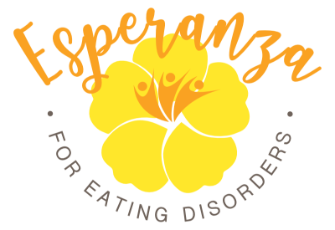
Evidence based and integrative therapy groups are integral to Recovery by Doing at Esperanza. Below you will find descriptions of the groups designed to give patients skills required to move into recovery.
Acceptance and Commitment Therapy (ACT) is a third-wave cognitive behavioral therapy treatment that is taught in a skills format. ACT teaches us how to identify, observe, and accept thoughts and emotions without judgement, particularly those that have caused distress and internal conflict. ACT skills include defusion which helps us detach from one’s own thoughts. ACT helps individuals identify personal values, act in accordance with their values, and find joy and purpose in daily life.
Anxiety Management is a DBT skills group for anxiety which guides us through the identification and awareness of anxiety thoughts and teaches anxiety management skills to keep one from avoiding situations that are anxiety-producing.
Behavior Chain is a DBT instrument that helps us identify the triggers, thoughts, emotions, and behaviors leading to an identified problem behavior. This group helps us build confidence and competence in the utilization of DBT skills when we engage in a problem behavior.
Body Image facilitates the development of respect, love, and appreciation for your body while also exploring the effects of media consumption and cultural information on the relationship we have with our bodies.
Cognitive Behavioral Therapy (CBT) explores how our thoughts, attitudes, and beliefs affect our feelings and behavior. CBT helps you identify and move towards your goals, develop problem-solving skills, and challenge cognitive distortions.
Connect with Nature gives patients the opportunity to plant, nurture and enjoy the beauty they help create in the garden. Herbs from the garden are also used in some of the meals prepared by patients.
Cooking Group helps us become familiar with the process of preparing and cooking a variety of foods for consumption. Taking place in our kitchen under the guidance of our dietary staff, this group is hands-on and exemplifies our philosophy of Recovery by Doing.
Creative Expression provides opportunities to create, explore, express, and play as pathways to healing. Various types of creative expression are introduced to empower participants to use these techniques in their recovery journey.
DBT for Distress Tolerance is a skills group for learning and implementing the DBT skills used when one is highly dysregulated. Distress Tolerance skills help us learn to effectively navigate moments of emotional crisis.
DBT for Interpersonal Effectiveness is a skills group for learning effective ways of communicating with others that help us obtain our objectives while maintaining the relationship and maintaining one’s self-respect.
Diary Card Training guides us through the process of using a DBT diary card, a therapeutic instrument that helps us self-monitor our daily emotions, record our urges, and document the DBT skills we used.
DBT for Emotion Regulation is a skills group for learning and implementing the DBT skills used when one is mildly dysregulated. Emotion Regulation skills help us understand the functions of our emotions, the action urges that result from different emotions, and when it is appropriate to act, oppose or problem solve these urges.
Eight Keys to Recovery from an Eating Disorder book discussion sheds light on just what it takes to successfully overcome an eating disorder.
Guided Imagery Meditation is a therapeutic use of visualization to bring about positive changes in thoughts and behaviors resulting in stress. reduction. Progressive muscle relaxation and sleep hygiene practices are introduced.
Mindfulness is a DBT & ACT core skill of awareness of our thoughts, emotions, and sensations in the present moment with acceptance rather than judgement. This group guides us through the development of the mindfulness skill.
Nutrition Education – Explores multiple topics ranging from identifying the type of eater we are, to why our bodies need carbs. This group often challenges us to find the connection between our emotions and our hunger/fullness, as well as our brains and our stomachs.
Relapse Prevention identifies relapse behaviors and thoughts with the intent to keep individuals moving towards recovery.
Self-Compassion educates patients on the ways that we talk about ourselves and the impact that these messages have on us. This group uses evidence-based practices that allow individuals to be present for their current situation, identify where they would like to grow, and cultivate a safe space for that growth to happen.
Shame engages patients using Brene Brown’s research inspired teachings as a framework. This group helps patients to become mindful of the different messages that we hear on a daily basis and how we can begin to give voice to these messages and recognize our shared humanity.
Sleep Hygiene educates us on the importance of sleep and the benefits of a consistent and healthy sleep schedule and regime. Sleep hygiene also helps us learn how to effectively prepare for sleep, implement skills to improve the quality of our sleep, and address sleep issues like insomnia.
TED Talk Group for Adolescents involves poignant and relevant TED Talks and engages patients in a discussion regarding how the material applies in their own lives. This group encourages conversation that is focused on recovery and how we can apply it in our own lives.
Yoga Gentle yoga with focus on the breath for relaxation, stress reduction and light stretching.
A wide variety of groups are offered to parents to teach skills which will allow them to help their teen with nutritional and clinical behaviors both during and after their time at Esperanza.

